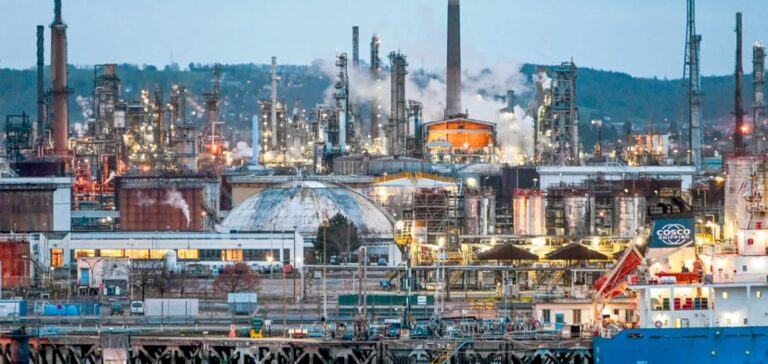Esso Raffinage has announced the gradual restart of its production units at the Port-Jérôme-sur-Seine platform starting 12 May, marking the end of a large-scale planned maintenance operation. Located in Notre-Dame de Gravenchon, the refinery is one of the group’s major industrial sites in France.
An operation involving 1,000 external contractors
During the technical shutdown, around 750,000 hours of labour were completed by approximately 1,000 external contractors working on-site each day on average. The operation enabled inspection and maintenance work on equipment typically operating under continuous service, which is critical to the site’s functioning.
Esso Raffinage management noted that the restart phase could result in intermittent flaring and temporarily elevated noise levels. Flares, which burn off excess gases during critical phases of startup, are part of the site’s industrial safety systems and serve to protect employees, contractors and nearby residents.
Commitments to minimise local disturbance
Esso Raffinage stated that on-site teams would implement the necessary measures to contain disruption during the restart phase. Site management also issued prior apologies to surrounding communities for any inconvenience caused by operations.
The Port-Jérôme refinery is part of the production network of Esso S.A.F., a subsidiary of ExxonMobil, operating in France for more than a century. The company remains a key player in supplying petroleum products to the French market.






















